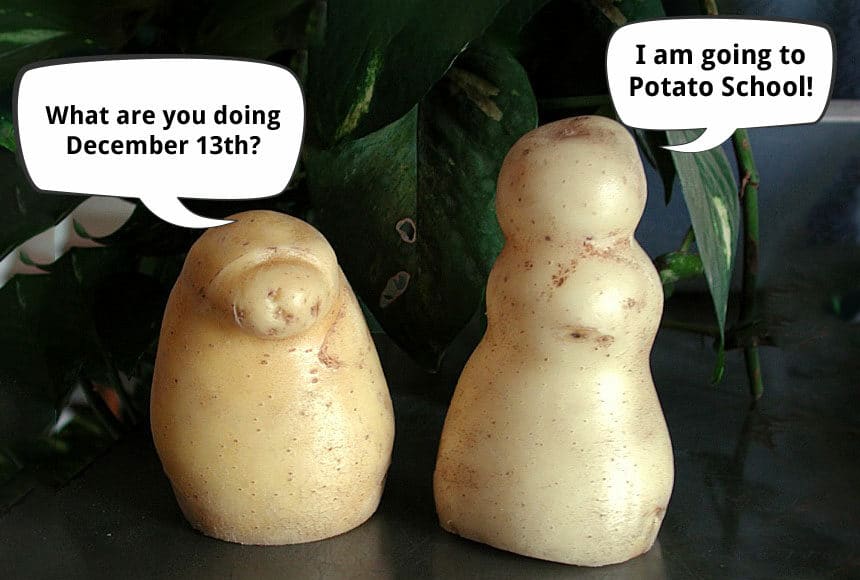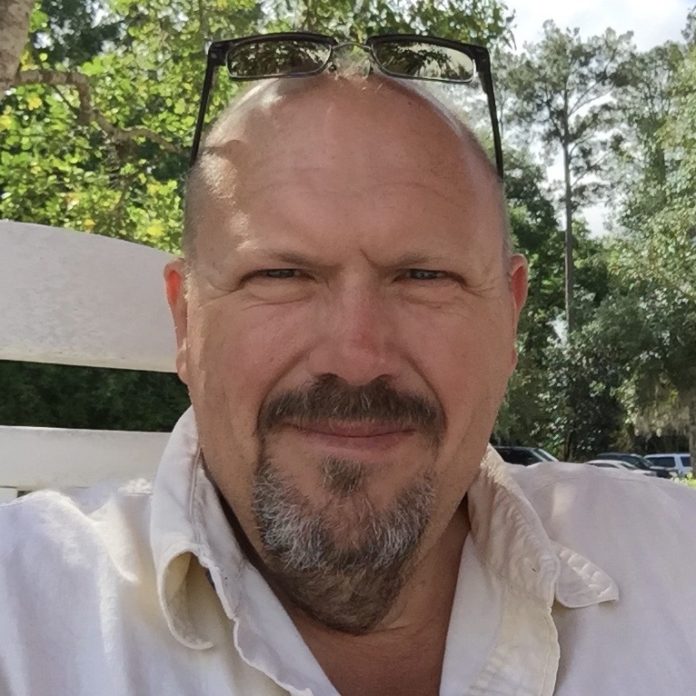The countdown is on to our free, open-to-all online Potato School, Dec. 13. One of the speakers I’m excited to hear from is North Dakota State University Plant Pathologist Gary Secor, who’ll be talking about fusarium and rhizoctonia management. Secor is among the most respected experts on fungal potato pathogens and the kind of guy I’d trudge through snow uphill to learn from. I sat down with him for a quick preview of what he’ll be speaking about at Potato School.
Chad Hutchinson (CH): First, thanks for making time to talk at Potato School.
Gary Secor (GS): Absolutely! Potato School is a great learning opportunity for producers, and I appreciate that you’re helping build a growing pool of knowledge and understanding.
CH: At past Potato Schools, you’ve talked about seed versus soil pathogens, then about the difference in managing invaders versus inhabitors. Last year, you presented about verticillium and early die complex. What’s the plan for this year?
GS: I see Potato School as a continuing educational series where all the presentations build and add to each other. This year, I’m talking about two common invaders that become inhabitors: fusarium and rhizoctonia.
CH: Can you preview what you’ll be sharing about fusarium?
GS: Fusarium causes various problems throughout the potato production cycle, from early die complex during the growing season to dry rot in storage. We’ll talk through how to identify which strain of fusarium is attacking your potatoes (which, yes, may be more than anyone ever wanted to know). We’ll dig into management strategies, especially cultural options (hint: PROTECT tubers from injury at harvest!) and chemical options including both seed treatments and storage products. A big part of my presentation will be discussing different fungicide options: what works, what doesn’t work, and what we just don’t yet know.
CH: You’ll also be talking about rhizoctonia.
GS: Rhizoctonia is very different than fusarium in that it doesn’t produce spores, so it doesn’t spread in soil. That said, it does transport in soil, so seed often carries the disease into the crop. Luckily, effective seed and in furrow treatments are available to combat disease during the growing season, but that’s not a complete solution.
CH: What’s a more complete solution?
GS: For both fusarium and rhizoctonia, we need an effective in-field treatment. Chloropicrin does a great job of managing other soil diseases so there’s real hope that it works on fusarium too. We need more data. An infield product would be a huge step in breaking fusarium and rhizoctonia’s disease cycles. In the case of each disease, we also need to identify economic thresholds, then build soil assays that can easily assess whether the disease has reached the economic threshold.
CH: I’m looking forward to hearing more at Potato School.
GS: I’m looking forward to sharing more!
CH: Potato School takes place Tuesday, Dec. 13 from 11 a.m. to 4 p.m. EST. To see the whole line-up of speakers and to sign up, visit: https://www.eventbrite.com/e/potato-school-2022-tickets-432993243447
Related Articles
Potato School – Is It On Your Calendar?
Tackling Early Die Complex — a Sneak Peek from Potato School
Dogs and Potato Diseases Take Centre Stage at Alberta Potato Conference








